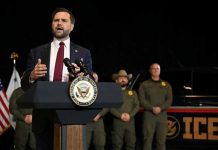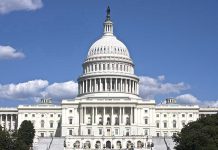
In a dramatic midnight ruling, a Biden-appointed judge blocked the Trump administration’s effort to return hundreds of unaccompanied Guatemalan children, igniting fierce debate over judicial overreach and the limits of executive authority on immigration.
Story Snapshot
- A federal judge halted the deportation of over 600 unaccompanied Guatemalan minors, citing legal and humanitarian concerns.
- The Trump administration’s expedited removals were suspended after advocacy groups claimed the children faced grave risks if returned.
- The case highlights ongoing tensions between executive immigration enforcement and court-mandated child protection statutes.
- This intervention raises alarms among conservatives about judicial activism and erosion of executive powers on border security.
Emergency Judicial Intervention Halts Deportations
On August 31, 2025, U.S. District Judge Sparkle Sooknanan issued an emergency order blocking the Trump administration’s plan to deport 76 unaccompanied Guatemalan children, with the order ultimately covering over 600 minors. The judge acted after late-night reports revealed children were already being loaded onto planes for removal. The legal challenge, brought by advocacy groups and attorneys, argued that these vulnerable children—many indigenous and facing language barriers—risked abuse, neglect, or persecution if sent back to Guatemala. The temporary restraining order protects all Guatemalan unaccompanied minors in federal custody as of the complaint’s filing, pending further legal review.
Federal courts have historically acted as a check on executive power, but this intervention has drawn sharp criticism from those concerned about national sovereignty and border security. The Trump administration, responding to years of unchecked illegal immigration and overwhelmed systems, argued that expedited removals were lawful under existing immigration statutes. Yet, advocacy groups like the National Immigration Law Center and the Young Center for Immigrant Children’s Rights swiftly mobilized, filing an emergency lawsuit and asserting that the removals violated federal child protection laws and due process rights.
Legal and Political Battle Lines Drawn
The judge’s order immediately returned the children to the custody of the Office of Refugee Resettlement, suspending their removal for at least 14 days while legal proceedings continue. Advocacy groups hailed the decision as a necessary safeguard for children’s welfare, while the Justice Department maintained that the administration’s actions were within its legal authority. This episode underscores the growing tension between the need to enforce immigration laws—widely seen as essential to upholding U.S. sovereignty—and court interventions that critics argue undermine executive discretion and embolden activist legal strategies.
For conservatives, the ruling exemplifies a broader pattern of judicial activism that can override the will of elected leaders and the security concerns of American families. The fact that the children in question are overwhelmingly indigenous, often speaking rare languages and facing significant barriers to integration, adds complexity to the issue but does not erase concerns about the precedent being set. Critics warn that such interventions may encourage further waves of unaccompanied minors and strain already overburdened federal agencies.
Broader Implications for Immigration Policy and Constitutional Balance
Short-term, the judge’s intervention shields over 600 children from immediate deportation and subjects federal immigration enforcement to heightened scrutiny. Longer-term, the case could set a precedent for increased judicial oversight in mass deportations, potentially complicating future executive efforts to secure the border and enforce immigration law. The episode has also intensified the policy debate: advocates for more open borders and expansive child protections clash with those demanding strict adherence to the rule of law and constitutional limits on judicial authority.
So democrats are now suing to prevent families from reuniting? Biden Judge Blocks Trump Admin From Returning Unaccompanied Children To Home Countryhttps://t.co/e9QngNMGnx
— JanWindsong (@JanWindsong) September 2, 2025
As legal proceedings continue, the children remain in federal custody, their fate uncertain amid ongoing litigation. The case has further polarized the national conversation around immigration, child welfare, and the appropriate role of the judiciary. For many conservatives, the story is not just about a single court order but about the recurring challenges to American self-determination, the erosion of constitutional checks and balances, and the need to defend national sovereignty against unelected judges and activist groups.
Sources:
Lawyers block Trump administration repatriating Guatemalan minors
US federal court orders halt to child deportations to Guatemala
Judge rules over 600 unaccompanied Guatemalan children can stay in the US
Children’s Advocates Condemn the Failed, Unlawful Removal of Guatemalan Children by the Trump Admin
NILC: Litigation Updates – LGML v. Noem


















